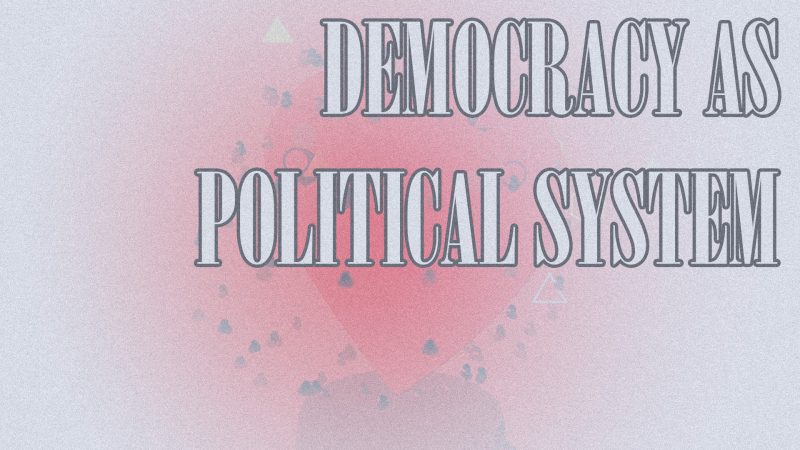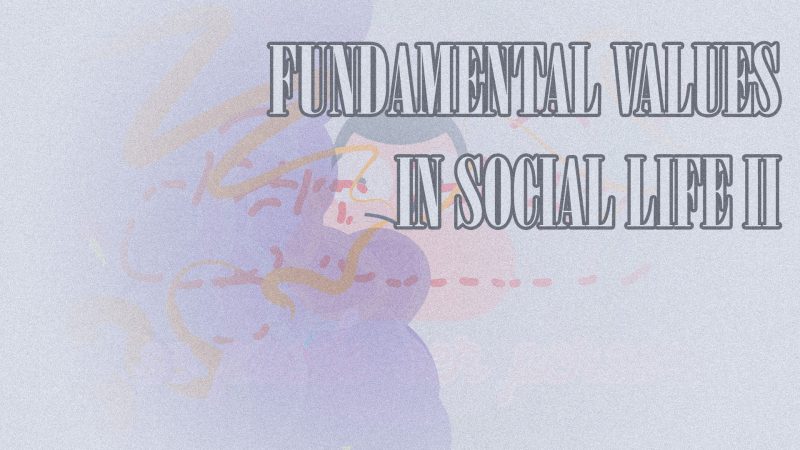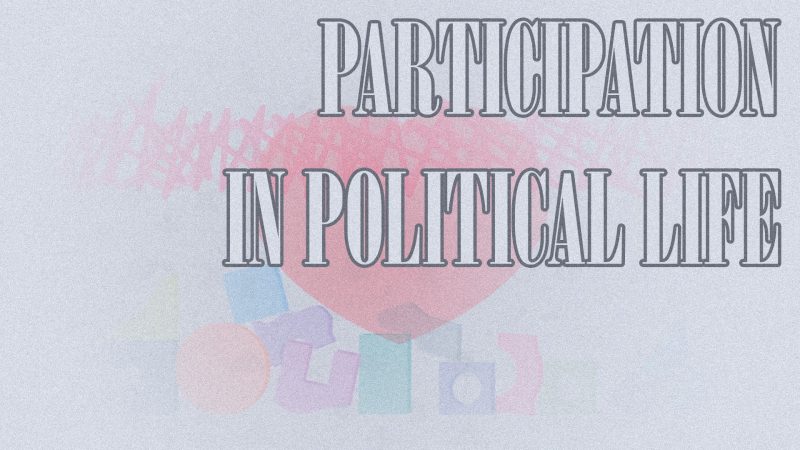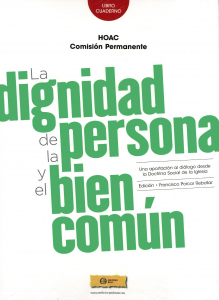Did you ever heard the sentence “The church shouldn’t talk about those subjects”? Let’s see how the Social Doctrine understands the relationship between the Catholic Church and the political community.
If we want a real democracy, it must receive and welcome the plurality of worldviews, ideologies and value systems that exist in society. All those exist as the fruit of the humans’ freedom of conscience. That plurality is good for society because communion can only be built over liberty and diversity.
But its practical reality depends on people trained as ethical subjects and on the construction of a politically responsible citizenship. If democracy is deprived of its ethical nature, then it is turned into a mere formal procedure where all we are turned into a sum of individuals competing for each against the other, forgetting the general welfare.
That ethical nature is the practical recognition of human rights, linked to human dignity. No social majority nor individual can rightfully deny those rights. Or democracy is founded on those or it can´t be considered as a true democracy.
A true democracy must be represented by a lay state, not assuming as own any ideology, philosophy or religion. At the same time, it must be able to recognize that the religious fact is not limited to the private scope. Religion is part of the social and personal reality of human beings. Denying that is to deny the very reality. In fact, is the same as denying the lay character of the society that must receive and welcome the plurality of worldviews. We must be able to develop a lay democracy and a public religion.
The political community needs to receive and welcome the Christian input and that from other traditions to build the common ethical nature. They can´t be ignored just because of majority decisions nor because of individual decisions raised to absolute criteria.
The social Doctrine claims that there exists a moral law because there exists a human nature, a Truth about the human being. When we recognize, respect and live that moral law we are humanized. When we ignore it, we are dehumanized, socially and individually. Furthermore, Social Doctrine insists on the promotion of moral law that the legal system must recognize, respect and promote. But this moral law cannot be imposed, just proposed.
However, there exist several barriers in our society that prevent this idea of lay state and public religion becoming a reality.
On one hand, relativism has been extended to every scope of public and private life, so the existence of a ultimate truth about the human being is denied. That situation weakens the social life because each person lives from their own individualistic and hedonistic point of view. Both political indifference and disaffection are normalized.
On the other hand, we can´t ignore the existence of people that want to exclude the Church opinions from every public life scope.
Facing that position, there is the claim of those who think that the Catholic Church must impose, even through coercion, their moral standards.
All this is hindering the building of a common ethical nature to sustain the democratic life. In this difficult context, the Social Doctrine propose to surpass those threats through two basic principles: autonomy and collaboration. Catholic Church and the political community can collaborate in what they have in common: The service to the human being, at the same time that each one works on its respective scope.
The Church has a lot to say, but whatever it is the input, it has to be made from tolerance.
But we can´t forget that tolerance is not meaning that everything has the same value. Without searching for justice nor living of solidarity, tolerance becomes indifference.
DSI sentence
Democracy has to offer real possibilities to respect the liberty of each and every one of us. That liberty has to be effectively granted, so people and groups can live according to their own convictions and offer to the others the best of themselves without the expression of violence.
CEE, Catholics in public life n. 82
Act
If we take a look at peoples thoughts around us, What do you think it has to be changed according to what we’ve talked about in this video?
Download the PDF attached
Previous video:
Next video:
You Might also like
-
Democracy as political system
The political community, the social tissue, can be organized in different ways. Although the Catholic Church does not identify itself with any of these forms, it considers some of them unacceptable because they don’t respect the person’s dignity. Social Doctrine considers the democracy as the better way to organize political life.
-
Fundamental values in social life 2
A social life without ethic values is like a flower withering. Social Doctrine considers four values as central and fundamentals for life and political action: Truth, justice, liberty and, carrying all of them, love, the political charity. To live those values leads us to self-fulfillment and to a more human social coexistence.
-
Participation in political life
Participation is the essential and central element of democracy. There is no true democracy without participation. Every democracy has to be participatory. The participation in political life is an expression of what human being is, of its dignity and responsibility for others and for the common good.




